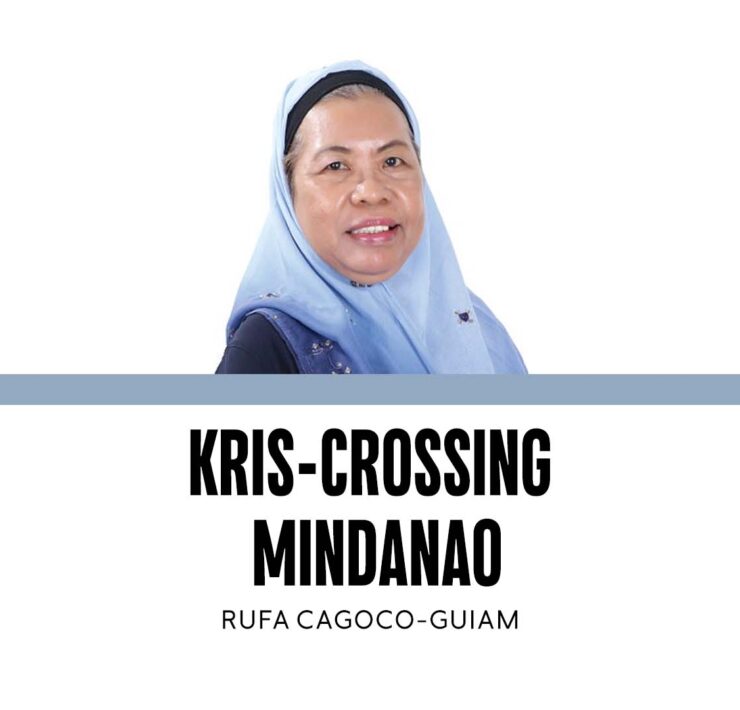Ominous prognosis for May 12 in BARMM (2)

Cotabato City—The Commission on Elections (Comelec) decision on the “real” outcomes of the 2022 mayoral elections in this city came at a time when the election period had already been heating up, with violent incidents occurring here and in nearby areas.
On April 23, 2025, the Comelec Second Division declared that former city mayor Frances Cynthia Guiani-Sayadi was the winner in the 2022 mayoral elections, and not Bruce Matabalao, who had earlier been declared the mayor immediately after the votes in the city polls were counted.
In its decision, the Comelec nullified the election results in the disputed 36 barangays in the city, citing “irregularities and fraud that rendered the (mayoral election returns) devoid of probative value.”
Guiani-Sayadi welcomed this decision, however late it was announced. In a statement, she said the decision reflected the “true sentiments” of Cotabato City voters, noting further that it was a recognition that “truth will prevail.” She also exhorted her supporters and those who voted for her to continue praying for calm to avoid any untoward incidents resulting from the Comelec ruling.
For his part, Matabalao, who has been holding the mayor’s position since June 2022, said that while he respects the “legal process,” he also maintains that the poll body’s decision is not yet “final and executory.” In a statement on his social media page, he said he is seeking “legal remedies” regarding this issue. Like Guiani, he has notified his supporters, among them members of the United Bangsamoro Justice Party (UBJP), to be calm amid this decision and to refrain from provocative actions.
UBJP is the official political party of the Moro Islamic Liberation Front (MILF), which negotiated the tedious and lengthy peace process between the group and the Philippine national government. Both the MILF and the government signed the Comprehensive Agreement on the Bangsamoro on March 27, 2014.
As of this writing (a week before May 12), tension is still high in the city as the supporters of both Matabalao and Guiani-Sayadi are on the lookout for any provocative actions from either side. Evidently, they are quite ready to act on this, and perhaps any call for them to “keep calm” will not be heeded by the supporters of both Guiani and Matabalao.
For the last three weeks, motorists frequently traveling the General Santos City-Cotabato City highway (like me and some members of my family) have noticed that army tanks dot the Maguindanao part of the highway—from the municipality of Ampatuan in Maguindanao del Sur to Datu Odin Sinsuat in Maguindanao del Norte. On my trip last week, I counted eight Army tanks placed cheek by jowl with one another; on the other side of the highway were Army trucks filled with soldiers in full battle gear.
The presence of these war materiel can send shivers down the spine of anyone who is not used to decades of armed conflict, like perhaps those who visit Cotabato City and the Maguindanao provinces for the first time. But as a member of the Bangsamoro community, I have already accepted that this is somehow an aspect of our almost daily reality. It has been like a “normal” part of our lives. My relatives often say that it will not be “normal” anymore if no violent incident takes place here.
Despite the election ban and Cotabato City’s status as one of the “red” areas for next week’s elections, several violent incidents have taken place, many of them in this city and nearby Maguindanao del Norte and Maguindanao del Sur. This indicates that the ban on carrying firearms has been inutile so far. Those who carry both long and short firearms are still on the prowl, ready to fire at targets as part of their killing mission for the price of P20,000 or even less, according to my informants.
In 2013, Vera Files, through a book, “Democracy at Gunpoint,” estimated the number of loose firearms in the autonomous region at 500,000. I am sure this number has even doubled or tripled, considering that even ordinary citizens in the city and in Maguindanao province have access to a short firearm. A town in Maguindanao del Sur is notorious for manufacturing handguns, and those who order them can even ask for special features, including gold-encased bullets. Allegedly, the mastermind of the 2009 massacre of 58 people in Ampatuan town used to have this type of bullet.
When all these are let loose, and since many candidates are awash with money to hire assassins, with firearms easy to acquire in the region, no amount of the election gun ban implementation will prevent violent incidents from happening. Here, upholding the rule of law is practiced in the breach. Only the “rule” of the rulers—those who have money and power—prevails.


















